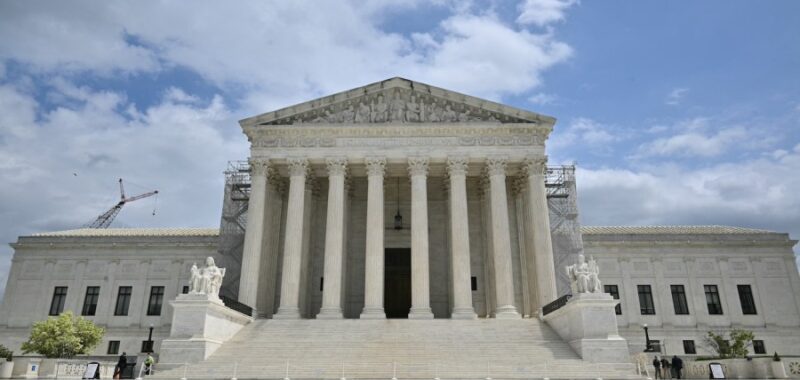
Numerous legal commentators have noted that the longer the Supreme Court takes to decide the Trump immunity case, the more suspicious the delay.
In Leah Litman’s view, the delay suggests “the reasons to think something is rotten at the court are impossible to ignore.” Michael Meltsner has concluded that the delay undermines any hope Chief Justice Roberts might have that “the public will think of [the justices] as nonpolitical, just fair umpires deciding cases.”
A quick decision would have enabled Special Prosecutor Jack Smith’s election interference case to be tried before the November election. Delay means that the case may never be heard at all.
Roberts himself sowed the seeds of delay at oral argument. There, he expressed concern that the lower court, in concluding that the former president was not immune from criminal prosecution for conspiring to overturn the results of the 2020 election, “did not get into a focused consideration of what acts we are talking about or what documents we are talking about.”
One might have expected Roberts to be more favorably inclined toward the appeals court’s framing of its decision, as that court hewed closely to the minimalist approach to constitutional decision-making that the chief justice has espoused. Throughout his tenure on the high court, Roberts has leaned into the view that, whenever possible, the justices should avoid dramatic rulings that reach beyond the narrow facts and circumstances of a particular case.
There is something to be said for this minimalist approach to constitutional decision-making. It acknowledges that the courts are but one part of our governmental scheme, and the one that the framers viewed as the least dangerous. Possessed of neither the purse nor the sword, as Alexander Hamilton famously put it, the judiciary depends for its legitimacy on the strength of the reasons for its decisions. In other words, absent a democratic check on the justices, the citizenry has some right to expect that they will not overreach.
And maximalist decisions will tend to invite the reasonable charge that constitutional litigation is simply politics by other means. In support of this position, one could point to Dobbs, the decision overturning Roe v. Wade; Roberts pointedly declined to join the majority, arguing instead for a narrower ruling that would not have eradicated all constitutional protection for abortion.
Which brings us back to the presidential immunity case. The appeals court’s decision in Trump v. U.S. was unambiguously minimalist. Indeed, the court stated that its review of the immunity issue was limited to the circumstances of the case before it, in which “a former president has been indicted on federal criminal charges arising from his alleged conspiracy to overturn federal election results and unlawfully overstay his presidential term.”
Most lawyers would understand such a statement to mean that, in a hypothetical future case concerning a former president’s immunity from criminal charges for actions that did not involve efforts to overturn the election, the decision in this case would not necessarily control.
By so confining its holding, the appeals court did much to deter the parade of horribles that Trump’s lawyers imagined might result if a former president does not enjoy some kind of blanket immunity. These include the possibility that Justice Samuel Alito raised at oral argument — that, absent immunity, the loser in a closely contested presidential election might decline to “go off into a peaceful retirement” out of fear he would be criminally prosecuted by the winner.
Perhaps such a situation was foremost in Alito’s mind because of the actual facts of the Trump case. Regardless, the point is that the appeals court’s reasoning leaves open the possibility of immunity from criminal charges on every set of facts that does not look just like the current case against Trump.
Given the narrowness of the appeals court decision, Roberts’s comment at oral argument is all the more notable. Whether certain acts or documents are or are not evidence of a defendant’s private and allegedly conspiratorial actions can be addressed at trial, as matters regarding privileges and the admissibility of evidence inevitably would be. Such a concern seems a thin basis upon which to object to a ruling that in itself reflects the very principle Roberts has long championed of deciding no more than is required at a particular moment in time.
There may be reasons to disagree with a preference for minimalism. But at least we can say that a commitment to deciding only what is necessary to resolve a constitutional dispute represents a principled approach to decision-making that aims to respect the constraints on the judicial role. The Supreme Court’s failure to simply and quickly affirm the heart of the appeals court’s decision regarding the facts surrounding Trump’s immunity claim may foreshadow an abandonment of any commitment to minimizing the effect of the court’s ruling on the political process — as well as any desire to appear that it does not have a thumb on the scale.
Lawrence Friedman teaches constitutional law at New England Law, Boston.

